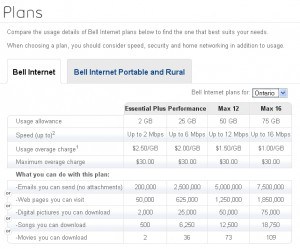Verizon neglects rural West Virginia while spending millions in more urban areas to upgrade to advanced fiber optic networks. (Image courtesy: Abandonedbyverizon.com)
Last November, residents in Morgan County, West Virginia became so exasperated with Verizon’s unwillingness to provide high speed DSL service in this rural region of the state, residents took to the streets holding signs proclaiming “Verizon neglects rural West Virginia” and “Honk for Broadband Internet.” A website called Abandoned By Verizon was launched to highlight the problem.
The problem? Verizon is spending its time, attention, and money on rewiring America’s larger cities with advanced fiber optic networks while selling off their rural customers to independent telephone companies.
Last year, Jennifer Carpenter-Peak and her husband Bob organized a public protest after being strung along by Verizon for more than three years for DSL broadband service. Each time they inquired about availability, they were told it was coming sometime later. Last fall, they were told to wait until sometime this year.
Of course, if the Peak family and their neighbors wanted service any quicker, they could always pony up the $10,000-100,000 the company wanted to wire their neighborhood, or opt for a slow T-1 commercial service line for around $500 a month.
Bob Peak told The Morgan Messenger it has been impossible to e-mail his photos and graphic designs from home. He takes his laptop and drives to town or to Cacapon State Park to send files.
“It’s become increasingly difficult to do business because all of my clients and vendors expect it,” Peak said of high-speed internet.
The Carpenter-Peak family also relied on some map data produced by Connected Nation’s ‘Connect West Virginia’ which broad-brushed Morgan County in April 2008 with lots of broadband service in the western and northern parts of the county. Of course, such service is not consistently available in all of the areas ‘Connect West Virginia’ claims, which is another reason why groups like this, well-connected with telecommunications industry players, should not be drawing maps for anyone.
One didn’t need a map to find area residents who agreed with the Peak family’s predicament:
Jim Hoyt said Frontier Communications had made a big effort to provide DSL to its telephone customers in the western end of the county. He wondered why the U.S. 522 Business Park didn’t have DSL.
Angela Petry said a lot of people are working from home and have a need for high-speed internet. It will keep dollars in the county, she said.
Bibi Hahn said one family in their subdivision would spend more time here if they had DSL.
“We need it. We need leadership to get it. We need commissioners and the governor demanding it,” Hahn said.
Getting high-speed broadband internet access throughout the county is the highest priority, said County Administrator Bill Clark.
Broadband was the top issue at the county’s Economic Development Authority summit and is of great importance locally, Clark said.
Clark has been working with all county providers to try and make headway, but it’s just not happening as fast as everyone would like it to, he said.
“It takes infrastructure,” Clark said.
Verizon has expanded its internet presence in the county and Frontier has DSL in some fairly isolated places, he said.
It will take people like last week’s protestors as well as petitions and surveys to get high-speed internet to more county areas, he said.
A new telecommunications committee is also trying to get a handle on the problem, Clark said.
What the Peak family probably didn’t realize is that Verizon was hard at work on a plan of a different kind: to throw the state of West Virginia, and the Peak family themselves, under the proverbial bus by selling off their operations and getting out of the Mountain State. That’s because Verizon doesn’t consider West Virginia worth the effort to rewire with the advanced fiber network it deploys in other larger states, so why spend millions of dollars when they can let the company that buys those assets deal with it?
On July 2nd, Verizon announced it was going to offer DSL service to another 1,800 lines in Morgan County, expecting to reach parts of the following areas: Route 522, near the Morgan County Business Park; Route 9 East in the River Road and Clone Run Road areas; the Johnsons Mill Road area that includes parts of Highland Ridge, Duckwall, Spriggs and Rupenthal roads; Great Cacapon, including the Maidstone and Cacapon River Meadows communities; Spruce Pine Hollow area, including Chestnut Grove and Spruce Pine Hollow communities, plus parts of Burnt Mill, Potter, Michael’s Chapel and Victory Lane roads; the River Road area, including Sleepy Creek Farms community and parts of Rover, Householder, Crone Lane and Poole roads; parts of Pious Ridge, Culp and River roads; Mountain Run Road area, including New Hope Acres and Deer Run Woods communities, and parts of Mountain Run, Shades Lane, Swaim Lane and Duckwall roads; Winchester Grade Road in the area of Sleepy Creek Forest community and parts of Virginia Line, Highland Ridge, Posey Hollow and Barnes Lane roads; and Spohrs Cross Road area, including areas along Route 9 and parts of Spohrs and Potomac roads.
Verizon’s entry-level DSL service offers speeds of up to 1 Mbps (megabits per second) downstream and 384 Kbps (kilobits per second) upstream. Consumers who want faster speed can order Verizon’s offering of up to 3 Mbps downstream and 768 Kbps upstream. No guarantee for customers actually achieving those speeds is provided, however. Providing service at speeds better than that will be up to the new owner of West Virginia’s telecommunications future.
Morgan County, West Virginia
That company will be Frontier Communications, if a deal can be approved by state regulators.
Frontier Communications is aggressive about deploying DSL broadband service to its mostly-rural customers. That’s because broadband is one of the company’s growth areas. Frontier wired telephone line customers are declining as customers switch to competitors or rely on their mobile phone for telephone service. But broadband service is a bright spot for Frontier, as it’s often the only player in town beyond incredibly cumbersome and expensive satellite broadband services in rural areas.
Will Frontier bring DSL to the Peak family and their neighbors if the deal is approved? Almost certainly, eventually. For West Virginia, the question of what kind of broadband service Frontier will provide is an entirely different, but equally important question.
Frontier continues to rely on increasingly dated ADSL standard service across most of its service areas. It’s a technology more than a decade old, with plenty of limitations and little room for growth. Frontier should be willing to provide at least ADSL 2+ service in less populated areas, and either VDSL service or fiber-to-the-home in more populated town and city centers. Both DSL “standards” are improvements over the original, and can often provide substantially faster speeds and room for growth well into the future. It also creates the potential for equity of access for rural and more urban consumers, or at least something approximating it.
In rural areas, standard DSL speeds often don’t exceed 1.5Mbps, and are sometimes even slower. Installation costs can be substantial, along with the monthly subscriber fees, taxes and surcharges, and modem rental costs. The further away one lives from the telephone company central office, the slower and less reliable the service becomes. Some customers living more than 18,000 feet from a central office will not be able to obtain the service at any speed.
Additionally, Frontier Communications continues to define an acceptable amount of residential broadband usage at a paltry 5GB per month. Although the company has not enforced that limitation to date, nothing precludes them from cutting customers off who exceed that minuscule amount of usage, or charge them overlimit penalties and fees for exceeding it down the road. That puts Frontier in a league shared only by wireless data providers like Verizon Wireless, AT&T Mobility, and Sprint. No other wired provider of note “limits” consumers to that tiny amount of usage. We continue to call on Frontier to delete the entire reference to “5GB” of usage from their Acceptable Use Policy, particularly if the company truly intends not to enforce it.
Should rural residents find themselves with Frontier as their only broadband service provider, the kind of broadband service they will endure, without revolutionary upgrades, could be essentially suspended in time while the rest of the nation marches forward with ever-increasing speeds and potentially lower pricing as a result of competition. It’s a phenomenon known as establishing a “broadband backwater,” where consumers are trapped with sub-standard service with onerous limits, slow speeds, and high pricing with little or no competition.
Although companies like Verizon have the financial resources to rewire even the smallest states with advanced broadband networks, even if they are currently unwilling to do so, smaller providers could find themselves in a reverse position – wanting to deploy advanced networks but lacking the financial capacity to do so.
The unnerving part about all of this is the Obama Administration is set to spend billions of taxpayer dollars to improve and enhance broadband networks, particularly in rural areas across states like West Virginia. Telecommunications companies nationwide are hiring consultants and grant specialists to tailor-write grant applications to receive public funds to build out their broadband networks. It would be a terrific shame if public money went to providers building networks based on yesterday’s technology, with paltry usage limits and high pricing for consumers, with some or most of those costs to construct the networks paid by taxpayers like you and I. That’s having your broadband cake and eating it too.
No telephone company should ever be given public money to construct broadband networks that cannot meet the need for increased speeds and consistent levels of service for every customer, today and in the future, regardless of whether they live in the largest city or a small mountain town in West Virginia. No sales transaction transferring assets from one phone company to another should be granted unless the needs of consumers are given first priority, not the afterthought they were given with some prior deals (FairPoint, Hawaiian Telecom, etc.) No public money should ever be handed over to a broadband provider that wants to establish Internet Overcharging schemes like paltry limits and tiers either, especially in non-competitive areas where consumers have just one choice.
<
p style=”text-align: center;”>
This article was published originally on ConsumerTel, our new pro-consumer website protecting the interests of telephone company subscribers.


 Subscribe
Subscribe




